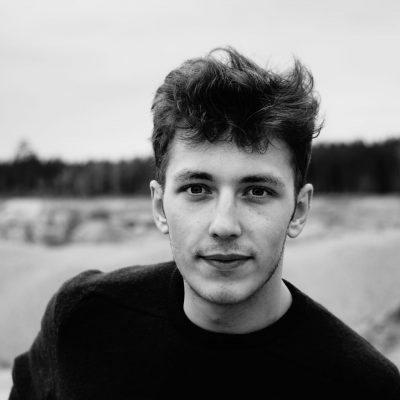
Faustas Norvaiša
Eastern Europe and Russian Studies student
You have a bachelor’s degree in English language and literature. Why did you decide to continue your master’s studies at IIRPS VU by choosing the field of political science?
For as long as I can remember, there were two subjects I was fascinated about: language as a tool to shape reality and the sublime object of evil. And how the latter obfuscates the prior – causes phenomenons of moral or social-political havoc.
That’s why I initially pursued literature at first – to understand the means people use to communicate among themselves plus learn how to evaluate cultural texts.
Of course, when it comes to my path towards IIRPS VU – let’s say that choosing my master’s was an easy pursuit.
I selected this institute to continue my studies because it was the only place in Lithuania that had good programs both academically and career-wise. Secondly, since political science, in terms of my scholarly interests, was my secondary objective after receiving my BA; so, everything just went through in logical order for what I’m extremely satisfied and grateful.
To summarize your professional activities, the latter relates to communication and writing. Tell me, how did you discover yourself in these areas? Do certain professional skills help with studying?
That’s relatively easy. Since adolescence, I started writing: short stories, sketches, poems, articles – you name it. Like, I always knew that I wanted to invest my whole life into this craft, so this is what I did and do.
Thankfully, many places need people who can write and love writing. Working in marketing – let’s say – allowed me to perfect my written word and learn how to feel the reader. Of course, some people may say that writing for the private sector is not a serious one at all. Yet, that’s what those, who have no understanding about writing, usually say.
That’s quite hilarious when I think about it.
When it comes to my academic life – copywriting, now content writing – taught me how to communicate difficult things in the most straightforward language. In my belief, this skill seems crucial in academia because that helps you be heard and understood.
What does your usual day of quarantine look like? Your professional activities are strongly related to creativity. How did you manage to create original ideas at this difficult time?
Sometimes I start my day at 6am or noon. I try my best to start each day with a nice cup of coffee and a good conversation with someone. So, we can say that it’s what sustains my creativity for now.
Although I never had to seek the moments to feel creative. That’s it. Of course, a good sleep is quite essential here because that’s how you can gather enough physical and mental strength so needed to carry out your daily tasks.
You are an active student. How do you manage to combine work, studies and leisure? Or maybe there’s no time left to rest at all?
I never felt tired or overwhelmed by all the things I do since my activities, studies, hobbies, and job has something to do with my “loves”. And what I mean is – I do things either for love, or I don’t do them at all. So, when things are like this, it becomes relatively easy to plan your day and feel relaxed as well.
That being said, timewise, I am just doing fine.
In conclusion, perhaps you would like to wish something for the institute’s community?
Stay safe and vigilant. Dare to think and ask questions about things around you since thinking allows one to determine the difference between what is right and wrong, beautiful from ugly.







